As we were wrapping up a recent all-day gaming event, I decided that we had to get a round of Kingsburg in before we called it a night.
Full disclosure: I love Kingsburg. (I even wrote an article about it.) Have loved it for years. The game is old—17 years old now!!—but it remains a favorite of mine because it does so many things right, and it has dice, and it gives players the chance to gut your neighbor by cutting off their ability to use all of their dice during each placement round.
The base game is enough for me, but expansion content was built over the years. One of the modules, Soldier Tokens, fixes the only major complaint players had about the rules in the base game. When a six-sided die was rolled to determine what all players could add to their reinforcements in the base game, that number would be added to any other battle strength from their completed buildings.
Soldier Tokens takes away the randomness, and in a dice game where so many other things are random, the Soldier Tokens module is an excellent addition to an already-strong foundation.
But there are five other expansions available for the base game. During my most recent play, I decided to add a module I had never used before: Destiny Cards. The Destiny Cards module adds event cards, one of which is played at the start of a year (round) of Kingsburg with effects that last for just that round.
Even after a single play, I considered lighting the entire event deck on fire. Then I remembered something—I hate event decks.
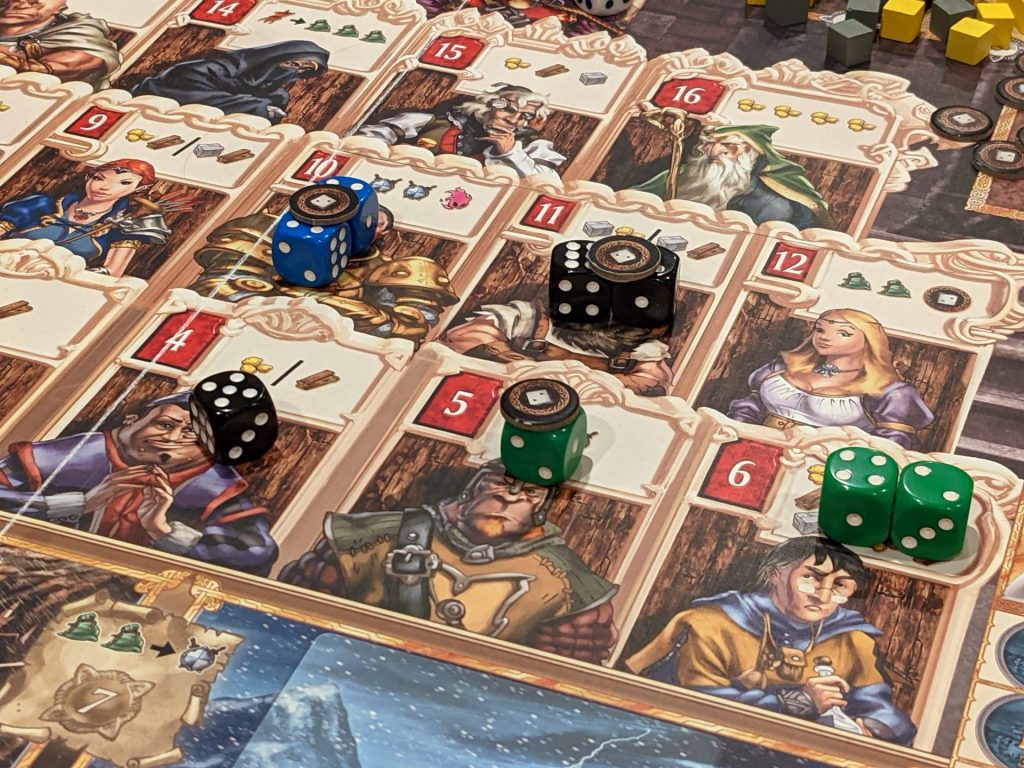
Here’s the Game. Now, Here’s the Same Game with an Event Deck
Here is my problem with event decks. In most of the cases I can remember—either because I’m just getting older, or because I’m being super selective to make my case for this article—event decks are used to make an otherwise good experience “better” by changing some of the rules for just a few minutes.
But then those decks don’t make the game better, or worse even. Event cards just make the game situationally different for only a couple of players at the table, in a way that no one else was planning for when they learned how to play the regular game. It’s like the game is just different, without any advance knowledge as to why.
I’ll give you a few examples. Cape May (2021, Thunderworks Games) is one of my favorite games from the Thunderworks Games catalog. Incredible production, easy to teach, the actions make sense, turns are fast. And those white-picket fence pieces to call out my Victorians as a landmark? Oh man, they’re so chunky and beautiful!
But every time I get ready to play Cape May, I have to admit the truth: I hate the event deck. Like, it’s just broken. In a game of Cape May, each of the game’s 12 rounds starts by flipping a card that changes the rules slightly for that round.
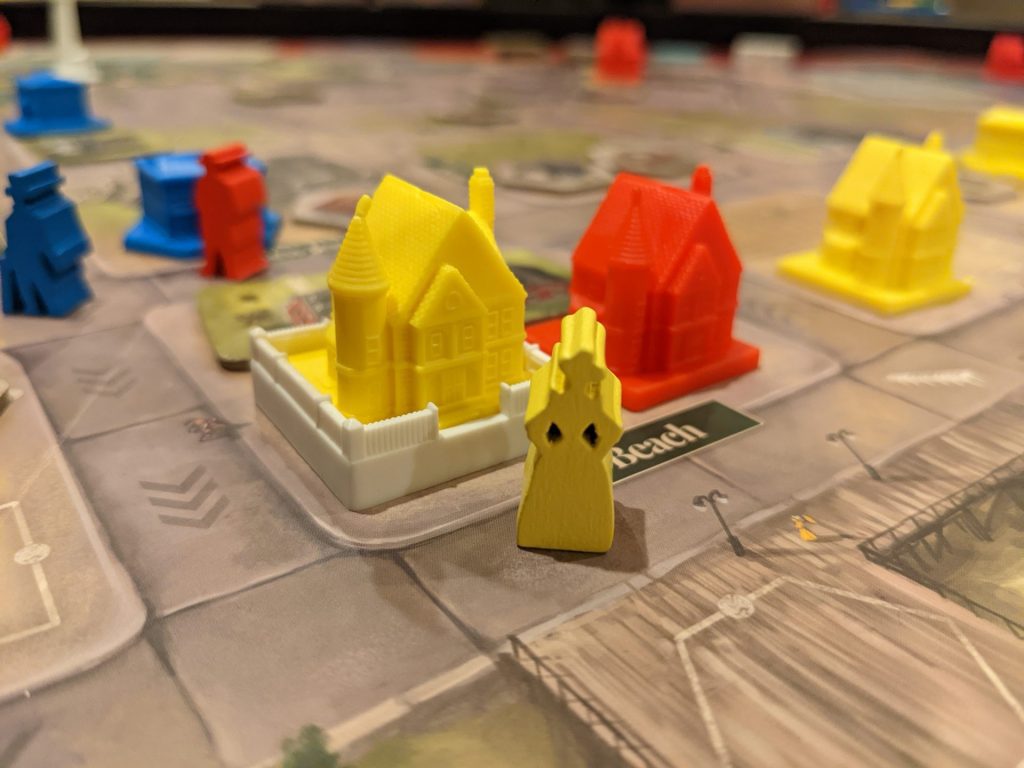
And each time I play the game, someone openly complains about these cards, usually after something like this happens:
Event card played before round number (you pick, but let’s go with round 5): all players who have built a business tile in the Sand zone get $2 per tile. If it is Summer, get $4 per tile.
You look around the table, and find that one person just happened to build three tiles in that part of the map. And since it’s round 5, that means it is Summer, so they just grabbed a quick, free, $12 bonus.
That person just won the lottery. Everyone else? For the simple act of just, you know, sitting down at the table, you didn’t get $12. Suddenly, you realize that you are going to have to find another way to grab cash to take more actions, while the lucky person at the table now doesn’t need any additional cash flow for the three actions that make up this round.
Even as a lighter strategy game, Cape May shines in most every other area. But the event cards tilt the balance and make a lightweight puzzle essentially a dice chucker. This is not an example of game design at its finest.
Another example? Dominant Species. It’s an ugly duckling of a production, but the asymmetric factions are fun and the game has a lot of interesting decisions. Each round features a card (I believe these are known as “Dominance Cards”) that comes out and almost completely breaks the game. Or at least that was my experience. My memory is a bit hazy, but in my single play of Dominant Species, it feels like a card was drawn that specifically called for the Reptiles to be wiped from the face of the earth.
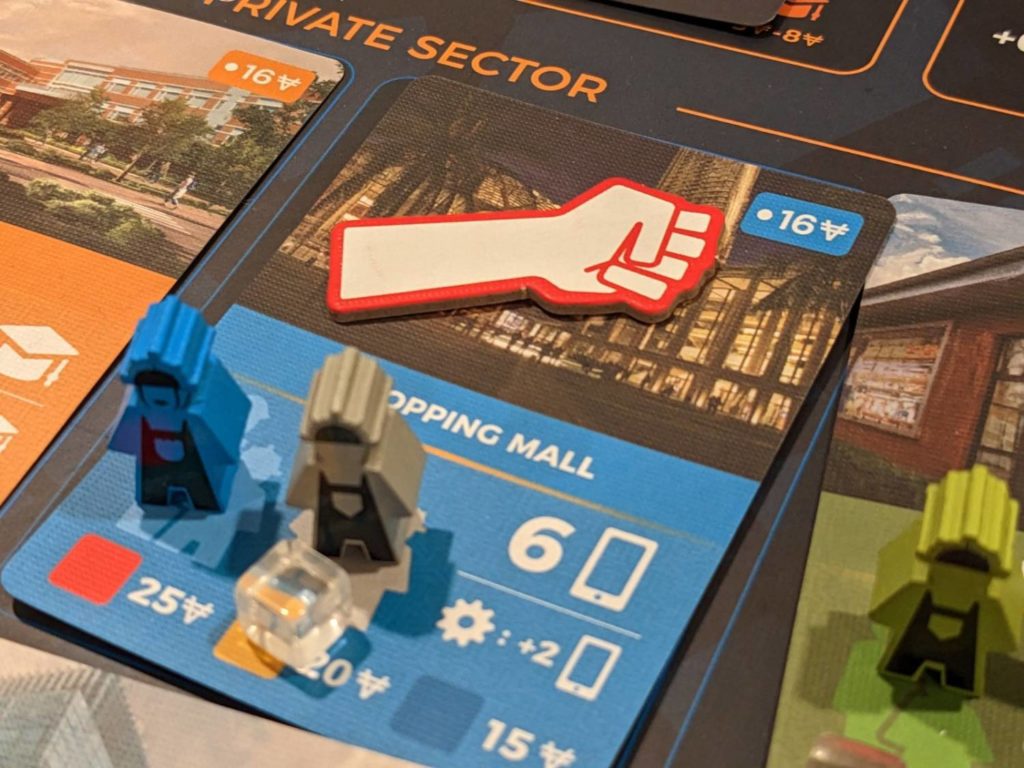
No, Not Hegemony
Regular readers of my content know that my favorite game of 2023 was Hegemony: Lead Your Class to Victory. I love it so much I named it my game of the year. I believe it to be a masterclass in complex game design mixed with a theme that actually feels close-ish to real-world politics. I had the chance to play Hegemony seven times in 2023, with five of those plays coming with a full four-player count (the count I recommend for new players).
Recently, a friend wanted to see if I was free for a play of Hegemony, so of course I jumped at the chance. Hegemony with four players? Fantastic, and I had been itching to try the Capitalist class again after only playing as the Capitalists once last year. My friend mentioned one other thing in the text chain:
“We are going to play with the expansion content from Hegemony: Crisis & Control and the “Historical Events” deck. Are you cool with that?”
I didn’t even blink. Despite my hatred of event decks, this was Hegemony. Hegemony can make any of my personal gaming issues go away, right?
Nope.
Right from the jump, I knew I was in for a long night of pain. Adding Historical Events adds six event cards to the game—one that changes the setup, then one that gets revealed before each of the five rounds of the game. The setup card, French Revolution 1789-1799, allowed everyone to take the Propose a Bill step before the game started. The round one event was the Russo-Japanese War of 1904-05. This meant that, randomly, the Working Class and Middle Class had to remove a worker from an already small unemployed worker pool, and the State lost 15 money.
I was worried, but hopeful. In heavier strategy games, I don’t like randomness, but I was hoping the deck would even out over five rounds. Besides, I knew this could lead to the kind of chaos I like in Hegemony. As promised, we had to vote on all seven policies in the Policy Table during Elections in the first round and the State was able to recover the lost cash thanks to taxes that got adjusted before the Production phase.
But then, I lost all three of the bills I proposed in that first round. Some of this was random, a normal part of the game. And as the most experienced player at the table, I was being targeted by a couple of other players who tried to snipe me into oblivion before I could get my profit engine rolling.
However, what if the game targets you just as much as the other players?
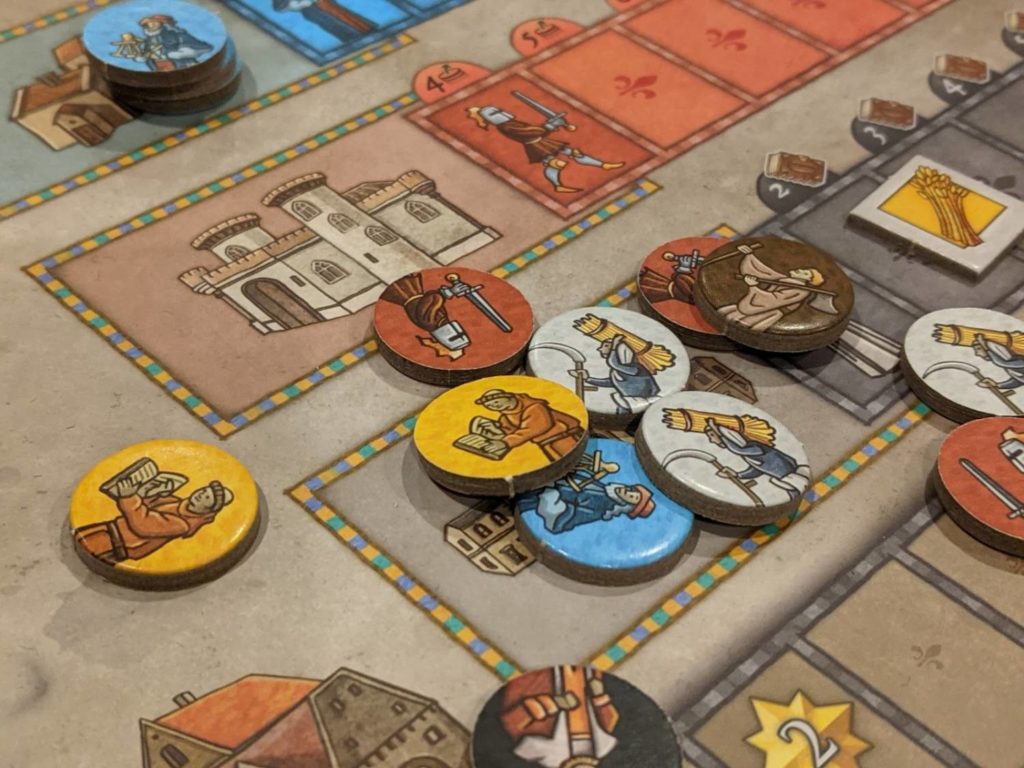
The next four events—somehow, all of them—benefited the other three classes and penalized my class. During the Great Depression, I had the sweet opportunity to lose a company without compensation. (Screw you, game.) Later, the Civil Rights Movement arrived, granting the Working Class free voting cubes and the Working Class even more cubes plus a free Strike action, which those peasants took to strike at my private education facility. (Big fan of the Civil Rights Movement. Just not in this board game.)
The events in Hegemony are balanced over the course of the 50 cards in the Historical Events deck…my problem is that you only see a half-dozen of those cards each game. What if you randomly select cards that help only half the table in your game?
I don’t have a real problem with event cards that benefit or penalize all players equally. It’s still random, but at least it doesn’t feel targeted. But most games get this wrong, which is why I wish designers would exclude event cards for eternity.
Orléans is one of the few games that does events right. Over the course of 18 rounds, the game’s six events happen three times each, and the events are clearly defined in the rules for all players to anticipate. At the start of a round, players know the event for that round and that it targets all players equally. Of the six event types, only Plague is technically random—players draw a random worker from their bag, and if it’s a worker that was acquired during the game, that worker dies and is removed from play—but smart players know how to work around the Plague action by gaming the system during the three Plague rounds.
Last year’s Voidfall also has the kinds of events I can get along with. There are penalties (usually) for everyone. There are clear rewards for getting around events with careful planning. And everything hits every player equally.
Why can’t more games do events this well?
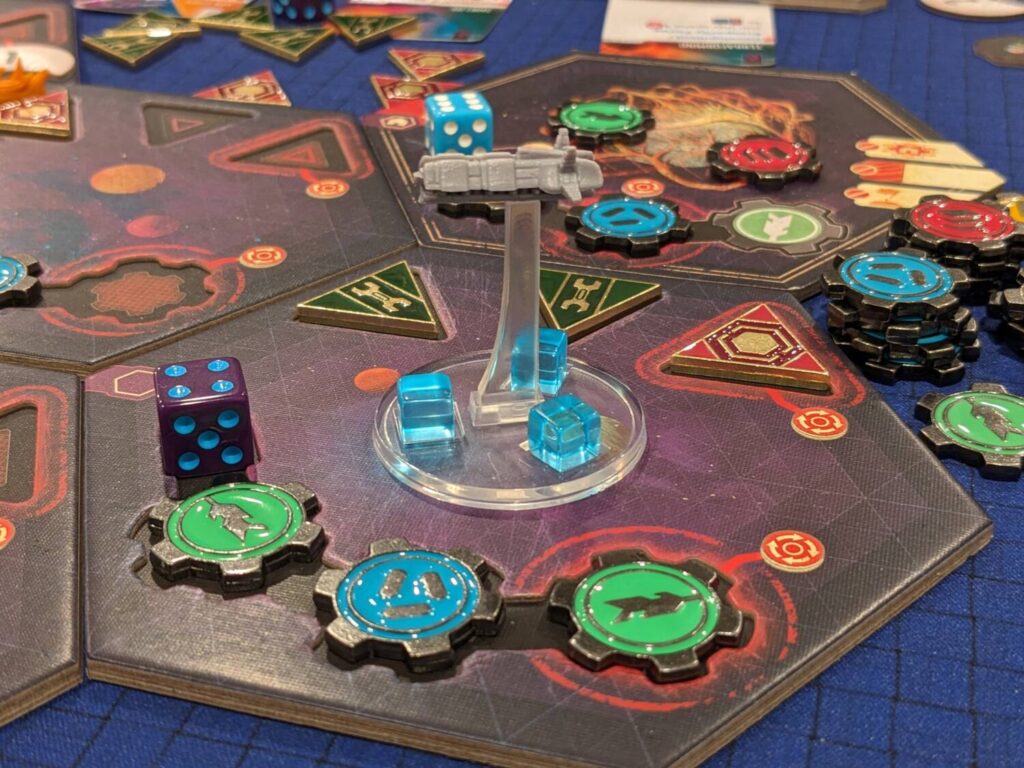
Flip a Card, Then Your Table
Let’s return to Kingsburg for a moment, shall we?
Even though we only saw five of the available event deck cards, most of them were negative. One card required players to spend gold resources by the end of fall, or lose two victory points per unfulfilled gold. Veteran Kingsburg players know how hard it is to get resources at all, and in a game where 50 points is quite an achievement, losing four points is quite a hit.
Just this card alone changed the trajectory of play for the players who rolled poorly that round. Another card dinged all players at the end of the year when battling the horde attacking each realm. A third card killed off the ability to score any points during the third stage of that year’s round, a killer for the player who had the runaway lead in buildings at the time. A fourth card added a monster to the final fight of the game, then announced that players would have to fight the harder of the two monsters.
All of this led to maybe the only time I can remember where Kingsburg wasn’t that much fun. The only new variable was the event cards, and the way they changed the rules badly damaged my engagement. Why would I want to make the game more random? For some reason, making the game harder, or spicing it up in other ways (such as adding the expansion that includes variable player powers), sounds much more interesting than planning to take turns in future rounds, only to find out that all the rules have changed.
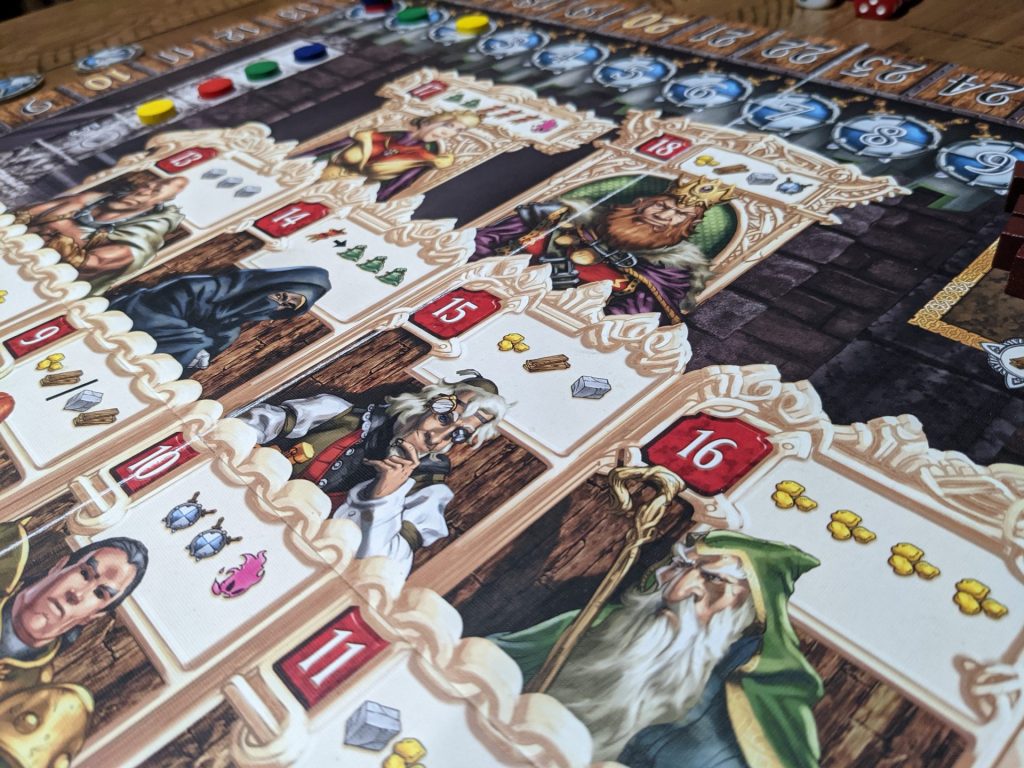
I am now quite wary of any game that uses event decks as a major part of the gameplay. It’s like the design was done, someone in development thought the game needed a little boost to get it over the top, then that same someone slapped an event deck onto the proceedings to make the game “better.”
This is not better! In fact, it is less interesting. I would love these decks more if they just broke through the proverbial fourth wall and read like so:
“For this round, the person of color who had the roughest day at work gets 37 free gold coins and the ability to play first. Also, everyone else has to call them ‘Prophet’ for the remainder of the game.”
Or maybe this:
“The person sitting closest to the chips gets to take an extra turn, and any buildings built by that person during the round are free.”
I’d also accept this:
“The person who drove the farthest to game night automatically wins the game.”
At least then, we would all agree that event cards are totally ridiculous and we could move on with our lives. In the meantime, dear designers, do me a favor: kill off the event deck. I’m begging you!


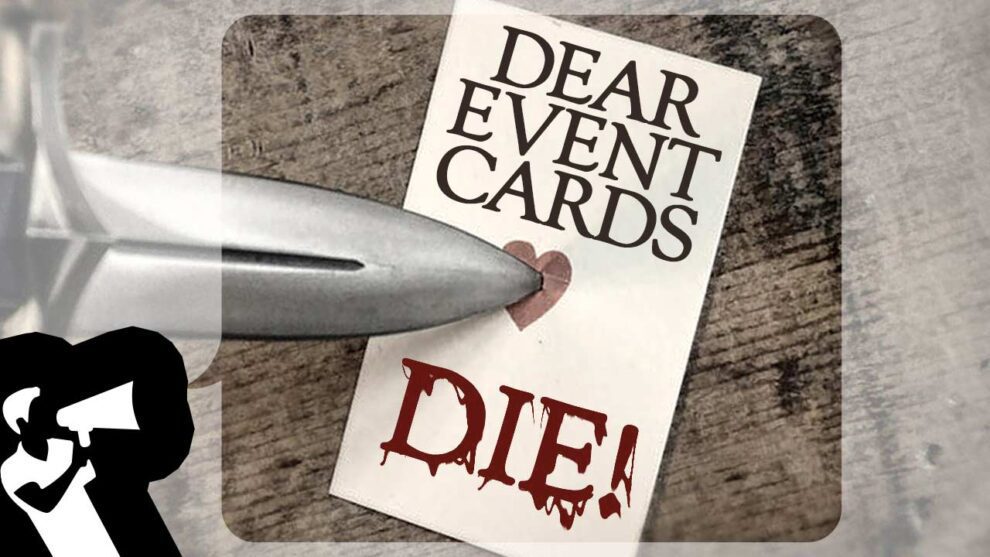












Amen! Preach on, brother Bell!
Another game that I think has good event cards is Game of thrones. I never felt it was really unfair or broke the game